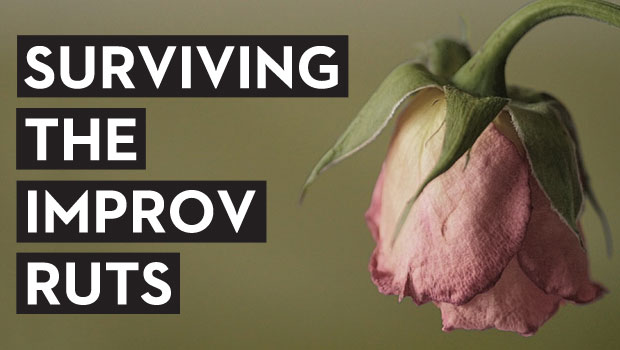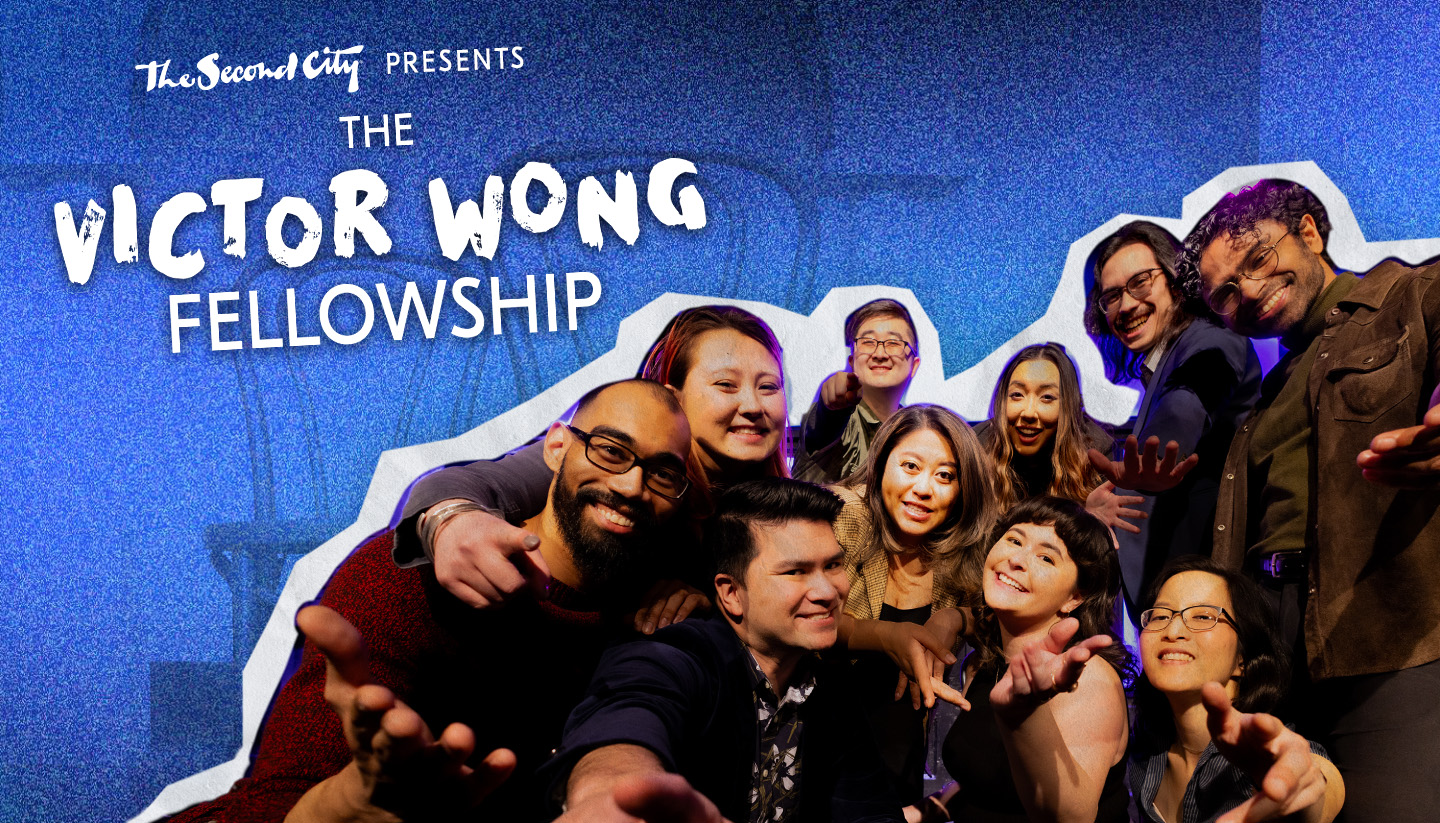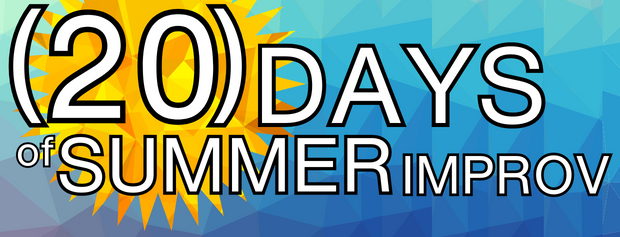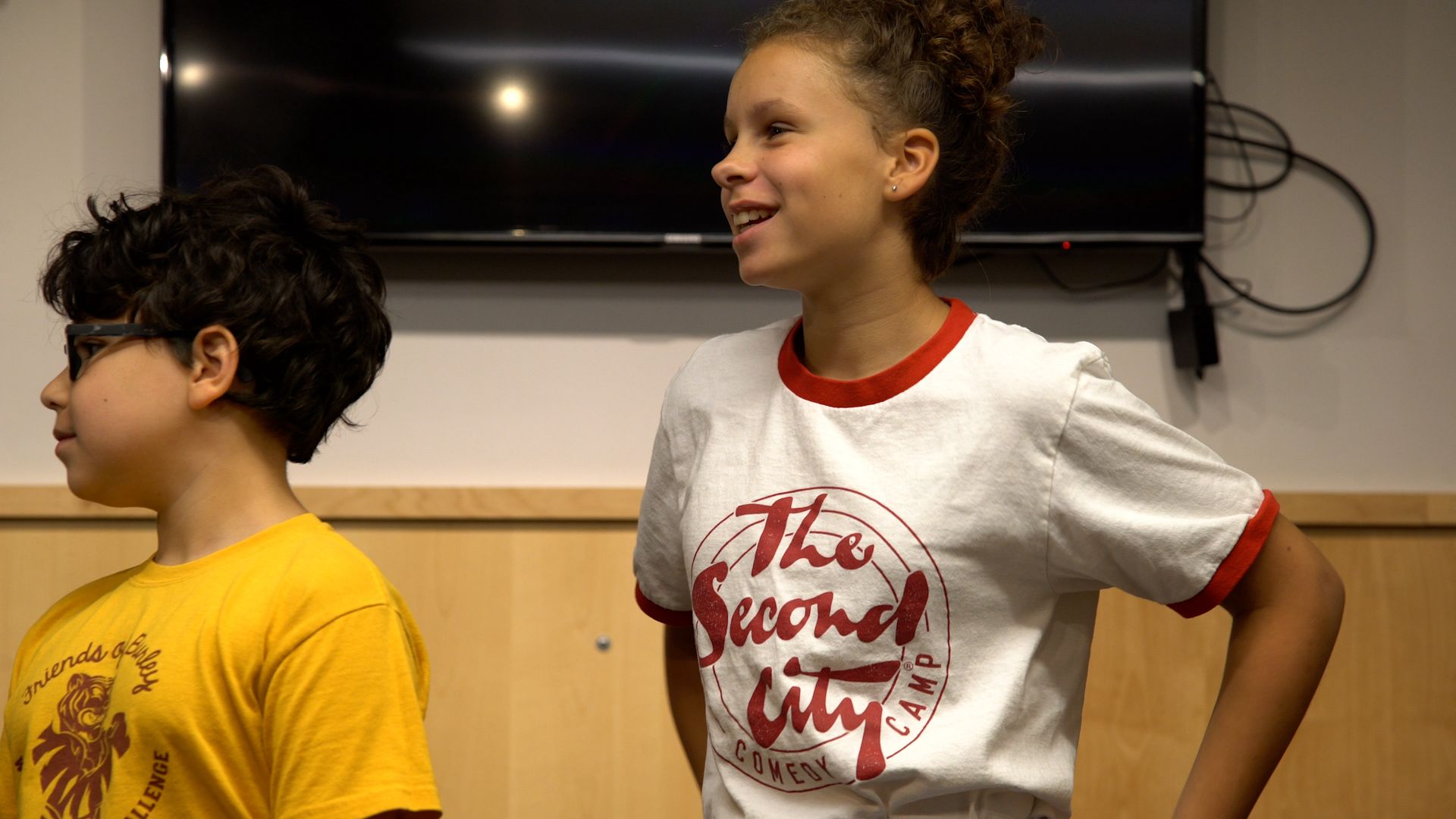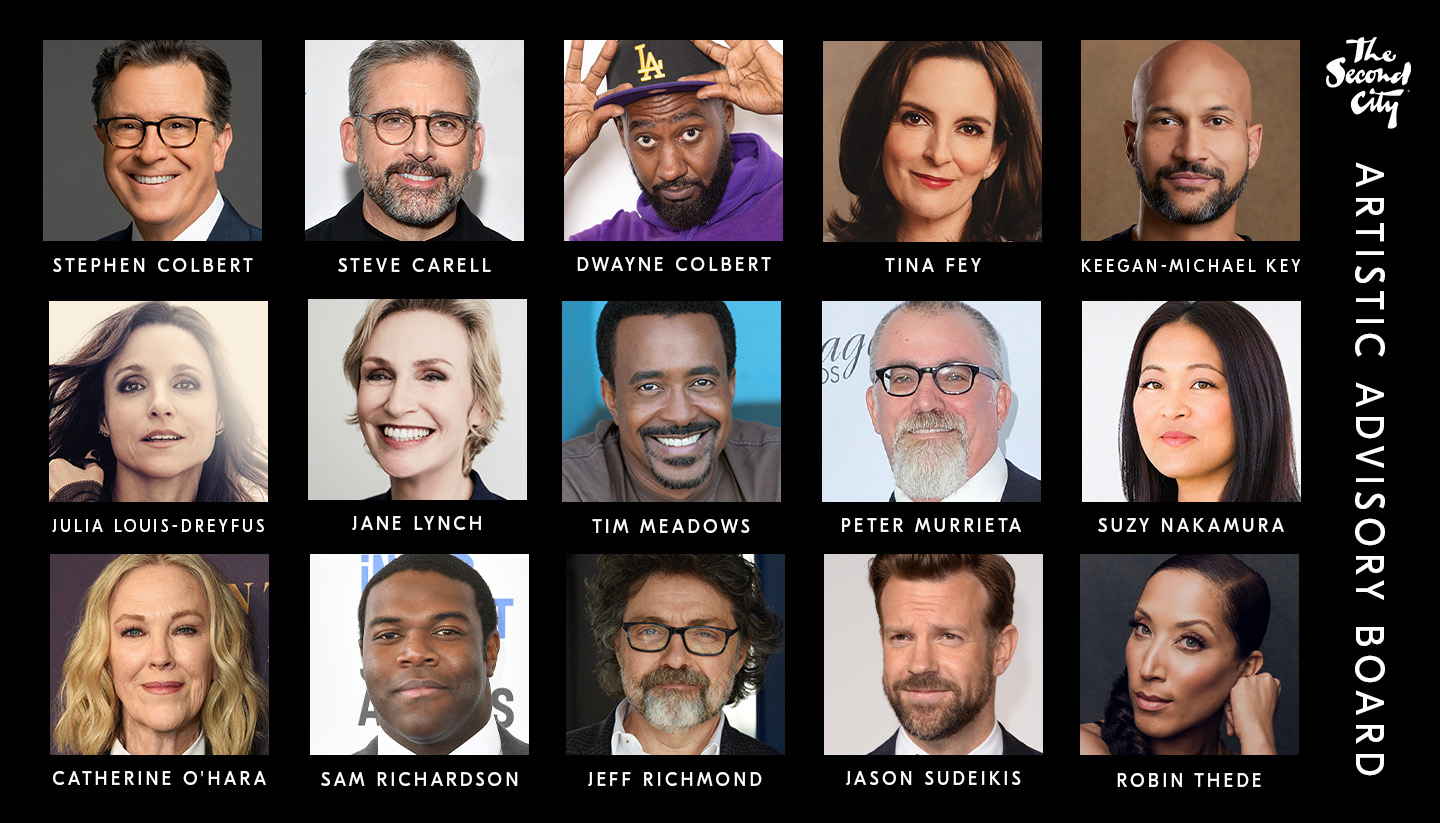It happens to every one of us who loves this weird, red-headed step-child of the artistic world:
The Improv Rut.
When every choice seems stupid, every laugh forced. That moment when the bloom isn’t just off the rose; it salted the garden on the way out, and we can’t remember why we ever loved this “improv thing” in the first place.
Here are a few of the most common improv ruts... and how to pull yourself out of them.
The Level B Rut
This isn’t so much a rut as it is the first time an improviser tends to beat themselves like a flagellant monk (not to be confused with a flatulent monk). Finishing our first semester of beginner classes arms us with just enough knowledge to go to town on our favorite target: the man in the mirror. And I don’t mean Michael Jackson. In fact, if Michael Jackson is the man in the mirror, then you need to get out of the house. I suggest taking the children with.
A recent study showed that people get twice as angry at losing twenty bucks as they are happy at finding a twenty. We tend to focus on the negative, making all those lessons we learned in our first improv level are ammunition for our inner critic.
Now, you flinch every time you ask a question, hang your head in shame every time you block someone’s offer. Saying “no” instead of “yes” makes you question your morality
Here’s the thing: improv is weird. We’re all inherently good at it; if we weren’t, we’d never get through the day without getting hit by a car. Mastering it for the stage takes time, often years.
Just because you’ve been told the basics doesn’t mean you have to be great at them-- yet. Two months into your training— hell, twelve months in— listen to the Buddha, and be gentle with yourself. Then rub his belly. He likes that.
The Second-Year Rut
This usually coincides with graduation from your first significant improv program. By now, you’re confident in your strengths. You’ve probably been doing shows for a few months and may have even knocked a few out of the park.
Then, without warning, it feels like you’re going backwards.
Why does everything suddenly seem so forced? You want to scream at the sky, “But I was getting it!!” You start consciously applying your lessons. Going out of your way to support your teammates. Saying “yes” to everything, throwing who, what and where around like confetti at an astronaut’s parade.
And you still keep getting worse.
Breathe. You’re not going backwards; you’ve just stopped accelerating. Everyone goes through times when all the lessons click, the skills get applied and BLAMO!!! Off you go, kicking ass and taking names. But everyone also experiences moments when you’ve absorbed as much as you can right now and spend a week, a month— sometimes longer— leveled off. And because you’ve become used to that feeling of acceleration, leveling off feels like a nosedive.
Breathe. You’ll find your mojo again.
Meanwhile, try saying “Fuck it.” Which, incidentally, is the solution most of the time.
The First Great Scene Rut
An improviser’s first great scene is like combining sex and food: Sure, it seems like great idea, but it’s a bigger pain in the ass than you think.
Let’s start by defining “great scene.” I’m not talking about that funny scene you did last week. I’m not talking about the fun, hey-how-about-that? scenes. I’m not talking about the eights.
I’m talking about The Ten.
The almost-failed, probably terrifying at some point, possibly out of control, holy-shit-it-all-came-together scene. The scene where the audience loses their freakin’ minds when the lights come down. The scene that, later at the bar, makes you look at your teammates and muse, “That was a pretty good scene, huh?” The scene that causes people to walk up to you six months later and ask, “Hey, weren’t you in that one scene that time?”
That scene.
The problem, for most of us, is that “that scene” is rare. Sure, there are improv gods who can point to center field at least once a show and make us cry, but the rest of us might get one or two of those scenes a year. If we’re lucky.
And the first time we do one… oh god, we want to do it again.
It’s okay to be average. One of my favorite improvisers once said that. He didn’t mean we shouldn’t strive to get better; he didn’t mean we shouldn’t attack each scene to the best of our ability. He didn’t mean we shouldn’t aim for greatness overall.
What he meant was this:
They can’t all be home runs. And they don’t need to be. That fun, hey-how-about-that? scene you did last week?
That was a pretty good scene, too.
Ian Donald Keeling began improvising in the 80s, back when we thought Jams were cool and Robin Thicke’s dad was the bomb. Currently, he’s a member of the improv and sketch-writing faculty at The Second City Toronto, and he still thinks Robin Thicke’s dad is the bomb.

 Shows & Tickets
Shows & Tickets  Chicago Venue Info
Chicago Venue Info  Classes & Education
Classes & Education  Second City Works
Second City Works  Second City Network
Second City Network  Our Legacy
Our Legacy 




